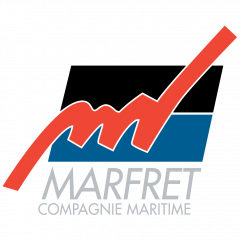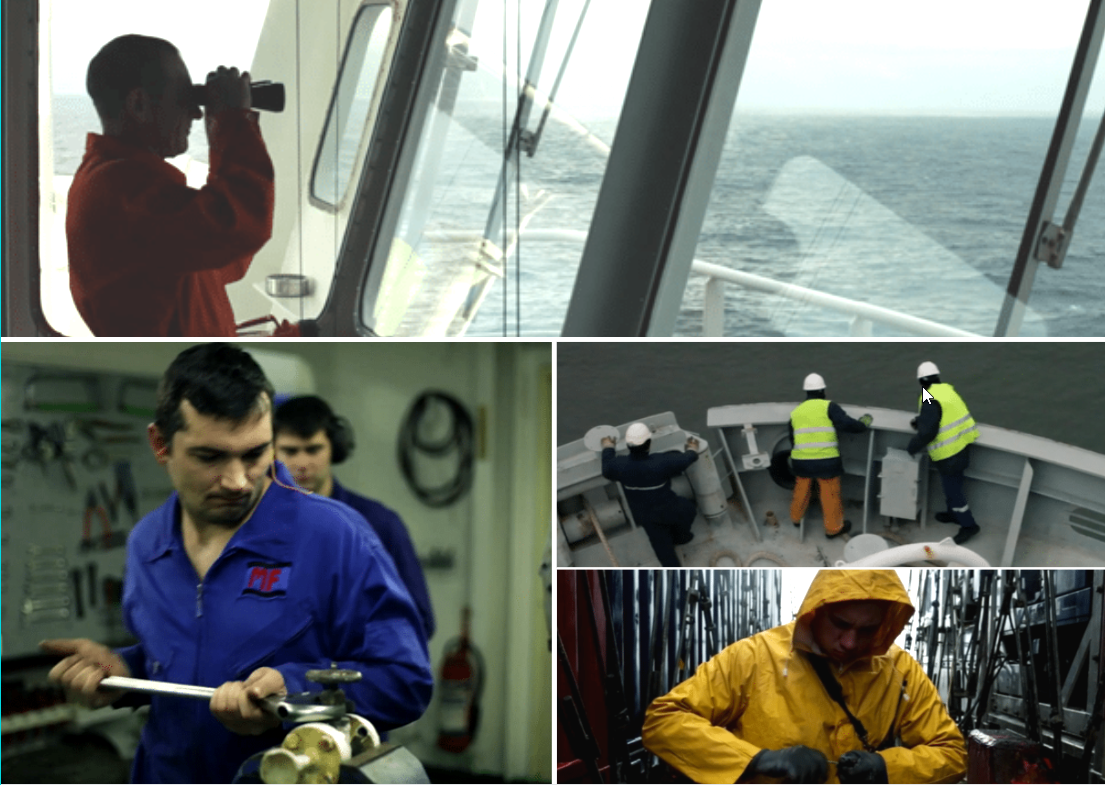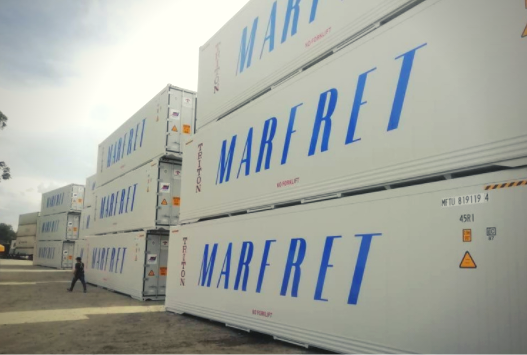When the entire planet is urging people to stay at home to avoid the propagation of the Covid-19 virus, seamen remain at sea ensuring fruit, meat, wine, television sets and cereals reach their destinations without fail to avoid any shortages. One year on from the start of the pandemic, Marfret applauds its crew members’ devotion to duty. The company has had to overcome the huge challenge of organizing crew changes in a context of constantly changing rules, while ensuring its crews’ wellbeing.
“I would like to pay tribute to our seafarers, who for many months have been on the front line of our efforts to transport the goods we consume. Martinique, Guadeloupe, French Guiana, and Tahiti have been supplied or a regular basis, despite the low load factors. While millions of people have been in lockdown, our seamen have remained on deck. We organise crew changes at very reactive ports such as Rotterdam and Algeciras and carry out PCR testing,” says Marfret managing director Guillaume Vidil.
In December 2019, when it took delivery of the Douce France in China, the company has been made aware of the health emergency. “As soon as December, we were notifying ships crews and putting in place measures to disinfect common areas. From that moment onwards, we prohibited crew members from coming ashore and restricted access to ships to the strict minimum, including for our agents and port operations staff,” explains head of EHS Sébastien Blancher. To counter any risk of contamination, Marfret suspended crew changes as from 17th March 2020. Since that date, even classification surveys, where possible, have been carried out remotely!
The masks come off
“The time spent on board ship has never been more than nine months. Marfret organised its crew changes just before the pandemic went out of control. Our crewing agencies V Ships and Marlow Navigation were really helpful in arranging flights home for our Russian, Ukrainian and Romanian seamen, a huge challenge given the cancellations that followed the closing of borders. This was also a problem for many months in the Philippines. Our crew members conducted themselves in an exemplary fashion,” underlines Marfret ship’s captain Charles Gauthier. One asymptomatic positive case was detected on 9th December during a changeover in Santos, Brazil, with local authorities requiring the Marfret Marajo to remain anchored for 14 days, which disrupted sailing schedules. “The crew stayed quarantined in their cabins and work rosters were reduced to a strict minimum, with longer meal breaks. We monitored things on a daily basis, with temperatures being recorded,” adds Sébastien Blancher. There are two units on hand to provide the French and foreign crew members with psychological support.
To keep its staff better informed, Marfret sends out monthly health bulletins with advice and information about the pandemic’s progress country by country. Three days prior to boarding, officers and crew members must take a PCR test and are particularly careful not to expose themselves to the virus during the last 15 days on shore. “The seamen are understanding, since they know all these health measures are for their safety,” concludes Romain Arnone, crewing assistant at Marfret. The only cause for satisfaction for crew members on board is that the masks can come off.



